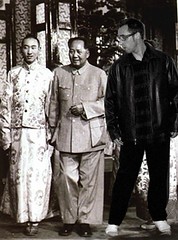(Best viewed in Internet Explorer)
Friends and Unfriends
In the increasing loss of meaning, and the ever-changing dynamics of meaning in society, a problem with the meaning of "friend" is emerging. The primary problem here, is that "friend" is taking on different meaning in difficult circumstances that are no interchangeable.
Friends, Until I Delete You
That is correct, even the concept of friend has been fully commodified.
There is a sort of cultural capital here. It seems clear to me that this is only possible in a post-industrial society to even occur to have concerns such as this.
There is something compulsive about the desire to share everything about ourselves. As though that in itself will lead toward self-discoveries or closer connections with other people. However, in a deluge of too much information, the valuation of all information decreases. We are not as easily moved by the gentle subtleties of our lives. And the context of our lives becomes this massive web, the meaning generated from all of its points sparkling against each other. And somehow, left wondering if anyone is at the helm.
The system is self-regulating. No-one, but everyone. The thick morass we are slogging through. There are plenty of ways to navigate through the system, but regardless of those choices - the system remains intact.
I can't help but think that the ramifications of the time spent managing friendships online has significant real world implications with how we interact with each other on a day-to-day basis.
Friends, Until I Delete You
[The] policy that Burger King ran afoul of this month with its “Whopper Sacrifice” campaign, which offered a free hamburger to anyone who severed the sacred bonds with 10 of the friends they had accumulated on Facebook. Facebook suspended the program because Burger King was sending notifications to the castoffs letting them know they’d been dropped for a sandwich (or, more accurately, a tenth of a sandwich).
The campaign, which boasted of ending 234,000 friendships, is history now — Burger King chose to end it rather than tweak it to fit Facebook’s policy — but the same can hardly be said of the emerging anxiety it tapped. As social networking becomes ubiquitous, people with an otherwise steady grip on social etiquette find themselves flummoxed by questions about “unfriending” people: how to do it, when to do it and how to get away with it quietly.
That is correct, even the concept of friend has been fully commodified.
[...]Burger King decided that it would do the talking for this article rather than its agency and delegated the task to Brian Gies, a vice president of marketing who said he was not a member of Facebook and therefore had not participated in the “Whopper Sacrifice.”
Mr. Gies explained the marketing team’s thinking about Facebook. “It seemed to us that it quickly evolved from quality of friends to quantity,” he said, “which was interesting to us because it felt like the virtual definition of a friend became something different than the friends that you’d want to hang out with.”
From there, Mr. Gies said, the team started wondering: “Do you really want to have all these people knowing what you’re up to and what you’re interested in? We wanted to be part of that conversation and part of that solution, and ‘Whopper Sacrifice’ was born.”
There is a sort of cultural capital here. It seems clear to me that this is only possible in a post-industrial society to even occur to have concerns such as this.
Facebook, which now has more than 150 million members, has clearly been built on the back of the culture of oversharing. Many members broadcast the mundane details of their lives through a “status update” feature, which lets people — nay, encourages them — to describe the contents of their lunch or the virulence of their bronchitis.
There is something compulsive about the desire to share everything about ourselves. As though that in itself will lead toward self-discoveries or closer connections with other people. However, in a deluge of too much information, the valuation of all information decreases. We are not as easily moved by the gentle subtleties of our lives. And the context of our lives becomes this massive web, the meaning generated from all of its points sparkling against each other. And somehow, left wondering if anyone is at the helm.
Even in this environment, however, deleting friends does not generate a notification of any sort, leaving members to discover they’ve been unfriended only when they find they no longer have access to someone’s profile. It can be a jarring experience, especially considering that the person who dumped you at some point either requested you as a friend or accepted your request (on Facebook, that is how friends are made). But members understand that such selective discretion is critical to the social-networking ecosystem.
The system is self-regulating. No-one, but everyone. The thick morass we are slogging through. There are plenty of ways to navigate through the system, but regardless of those choices - the system remains intact.
I can't help but think that the ramifications of the time spent managing friendships online has significant real world implications with how we interact with each other on a day-to-day basis.
























0 Comments:
Post a Comment
<< Home